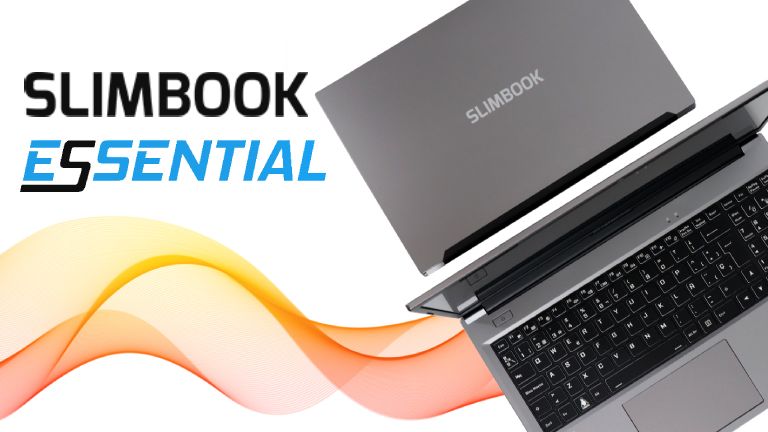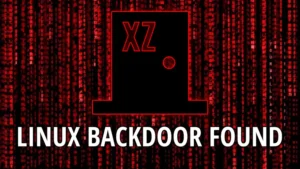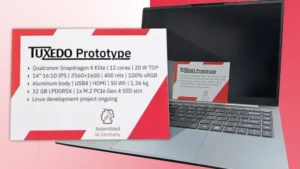Mere minutes after publishing the latest episode of Linux For Everyone, during which I lament the lack of affordable Linux computers targeted at everyday PC users, Slimbook went and rendered my argument (mostly) irrelevant by announcing the Slimbook Essential, a pair of reasonably-priced Linux laptops starting at €499 ($590) and not targeted at enthusiasts or developers.
I promise I’ll share all the details and specs below, but please indulge my brief explanation of why hardware launches like this are important.
Desktop Linux has an area of opportunity: larger adoption among “typical” PC users. These are the folks who rely on their PCs for browsing the web, keeping up on social media, doing some light gaming, and joining the occasional video conference. They don’t need 8 cores and blistering performance. They certainly don’t need Windows or macOS.
Yet within our Linux bubble all the coverage and hype surrounds the bleeding edge, higher-end hardware. The System76 Oryx Pros, the Dell XPS 13 Developer Editions, the Fedora-powered ThinkPads. And yep, I’m guilty of perpetuating that behavior because I’m a fellow hardware addict!
We need to make more noise about laptops like the Slimbook Essential so that we don’t exclude everyday PC users from this awesome Linux party. So let me commence with the noise-making.

Slimbook Essential 14″ backlit keyboard 
Slimbook Essential 15″ RGB keyboard 
Slimbook Essential 14″ Linux laptop 
Slimbook Essential 15″ Linux laptop 
Slimbook Essential Linux laptops side by side
ESSENTIAL SPECS
The Slimbook Essential is an Aluminum, ultrabook-class laptop with thin bezels, a 180-degree opening angle and ships with Intel Core i3, i5 or i7 CPUs in both 14″ and 15″ versions.
The 15-inch version even boasts a fully customizable RGB keyboard!
| ESSENTIAL 14″ | ESSENTIAL 15″ | |
| CPU | Intel i3-1005G1 Intel i5-1035G1 Intel i7-1065G7 | Intel i3-10110 Intel i5-10210 Intel i7-10510 |
| Display | 14 inch, 1920×1080 FullHD with matte finish | 15 inch, 1920×1080 FullHD with matte finish |
| Keyboard | White backlighting. Multiple languages | RGB backlighting, Numeric keypad. Multiple languages |
| RAM | 2 DDR4 2666Mhz slots up to 32GB | 2 DDR4 2666Mhz slots up to 32GB |
| Storage Drive | NVMe: 250GB, 500GB, 1TB or 2TB | NVMe: 250GB, 500GB, 1TB or 2TB |
| Graphics | Intel Iris Plus | Intel UHD |
| USB | 1 x USB 3.2 Gen 2 port (Type A) 1 x USB 3.2 Gen 2 port (Type C) 1 x USB 2.0 (Type A) | 1 x USB 3.1 Gen 2 port (Type A) 1 x USB 3.1 Gen 2 port (Type C) 2 x USB 2.0 (Type A) |
| Wireless LAN | Intel 9560AC Intel AX200 | Intel 9560AC Intel AX200 |
| SIM 4G LTE | No | Optional |
I’m liking how this laptop can be an affordable but competent machine for basic tasks, and also how it can scale up to a respectable little powerhouse with an Intel Core-i7, 32GB of RAM and a 2TB NVMe SSD drive. Not too shabby.
Both models are available to pre-order now, beginning at €499 and €549 for the 15″ model.
Another facet of the Slimbook experience I appreciate is that they offer a healthy variety of pre-installed distributions including Ubuntu, KDE Neon, Debian, Linux Mint and openSuse. You can even have them set up a dual-boot configuration with Windows 10 Home or Pro if needed.
Personally, I think these starting prices are quite decent for Linux laptops, but I’d love to see that price tag dip down even further. But how do we accomplish that? More sales, more customers, more growth for companies like Slimbook, which allows them to utilize economy of scale to bring the world more affordable hardware.
Will you be picking up a Slimbook Essential? Let us know down there in the comments!










That’s indeed good news. Recently I contemplated buying a laptop. I have reasonable needs and was stuck in between buying an Asus (or similar) or spending sensibly more for a Tuxedo or a Slimbook. Too bad it’s not powered by AMD though.
This time next year and I think we’ll see an ENORMOUS amount of Ryzen-powered Linux options.
That sounds and looks very tempting. I am a teacher so I never had a need for those developer editions and whatnot. I use my laptop every day the whole day but my demands are not too high.
This Slimbook looks like the perfect laptop if I need a new one. I will certainly consider it.
I guess they listened to your podcast.
Interesting. Are these developed in-house or rebadged from an OEM like Clevo? If so I’m curious how they’re able to be so (relatively) inexpensive.
I read somewhere or heard that they are from Clevo but I am not 100 % sure.
Join the discussion at forum.tuxdigital.com
5 more replies